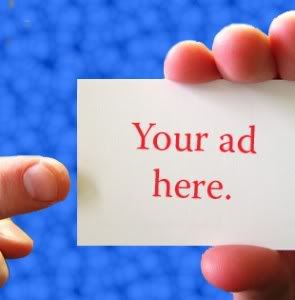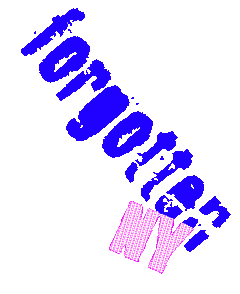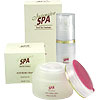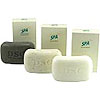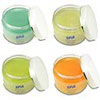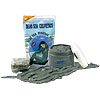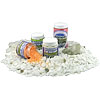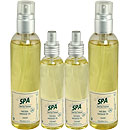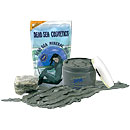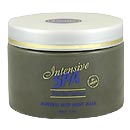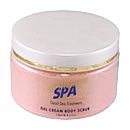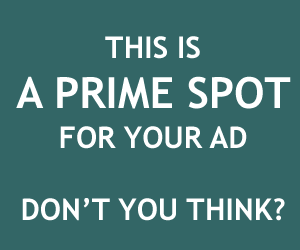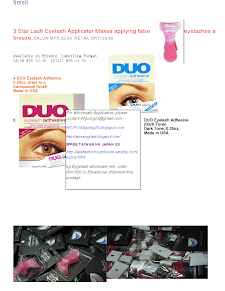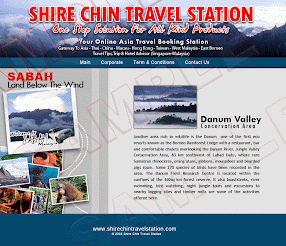Privacy Policy
Privacy PolicyAt this site, the privacy of our visitors is of extreme importance to us. This privacy policy document outlines the types of personal information received and collected, and how it is used.
Log Files
Like many other Web sites, this site makes use of log files. The information inside the log files includes internet protocol ( IP ) addresses, type of browser, Internet Service Provider ( ISP ), date/time stamp, referring/exit pages, and number of clicks to analyze trends, administer the site, track user’s movement around the site, and gather demographic information. IP addresses, and other such information are not linked to any information that is personally identifiable.
Cookies and Web Beacons
The website does not use cookies.
Some of our advertising partners may use cookies and web beacons on our site. Our advertising partners include Google Adsense.
These third-party ad servers or ad networks use technology to the advertisements and links that appear on the website end directly to your browsers. They automatically receive your IP address when this occurs. Other technologies (such as cookies, JavaScript, or Web Beacons ) may also be used by the third-party ad networks to measure the effectiveness of their advertisements and / or to personalize the advertising content that you see.
This site has no access to or control over these cookies that are used by third-party advertisers.
You should consult the respective privacy policies of these third-party ad servers for more detailed information on their practices as well as for instructions about how to opt-out of certain practices. Our privacy policy does not apply to, and we cannot control the activities of, such other advertisers or web sites.
If you wish to disable cookies, you may do so through your individual browser options. More detailed information about cookie management with specific web browsers can be found at the browsers’ respective websites.
If you require any more information or have any questions about our privacy policy, please feel free to contact us by email our webmaster.
In addition, below is part of the privacy policy from google.
· Google, as a third party vendor, uses cookies to serve ads on your site.
· Google’s use of the DART cookie enables it to serve ads to your users based on their visit to your sites and other sites on the Internet.
· Users may opt out of the use of the DART cookie by visiting the Google ad and content network privacy policy.
DISCLAIMER & NO WARRANTY
WEBSITE DISCLAIMER
No warranties
This website is provided “as is” without any representations or warranties, express or implied. Site owner makes no representations or warranties in relation to this website or the information and materials provided on this website.
Without prejudice to the generality of the foregoing paragraph, site owner does not warrant that:
l this website will be constantly available, or available at all; or
l the information on this website is complete, true, accurate or non-misleading.
Nothing on this website constitutes, or is meant to constitute, advice of any kind. [If you require advice in relation to any [legal, financial or medical] matter you should consult an appropriate professional.]
Limitations of liability
Site owner will not be liable to you (whether under the law of contact, the law of torts or otherwise) in relation to the contents of, or use of, or otherwise in connection with, this website:
l [to the extent that the website is provided free-of-charge, for any direct loss;]
l for any indirect, special or consequential loss; or
l for any business losses, loss of revenue, income, profits or anticipated savings, loss of contracts or business relationships, loss of reputation or goodwill, or loss or corruption of information or data.
These limitations of liability apply even if site owner has been expressly advised of the potential loss.
Exceptions
Nothing in this website disclaimer will exclude or limit any warranty implied by law that it would be unlawful to exclude or limit; and nothing in this website disclaimer will exclude or limit site owner’s liability in respect of any:
l death or personal injury caused by site owner’s negligence;
l fraud or fraudulent misrepresentation on the part of site owner; or
l matter which it would be illegal or unlawful for site owner to exclude or limit, or to attempt or purport to exclude or limit, its liability.
Reasonableness
By using this website, you agree that the exclusions and limitations of liability set out in this website disclaimer are reasonable.
If you do not think they are reasonable, you must not use this website.
Other parties
[You accept that, as a limited liability entity, site owner has an interest in limiting the personal liability of its officers and employees. You agree that you will not bring any claim personally against site owner’s officers or employees in respect of any losses you suffer in connection with the website.]
[Without prejudice to the foregoing paragraph,] you agree that the limitations of warranties and liability set out in this website disclaimer will protect site owner’s officers, employees, agents, subsidiaries, successors, assigns and sub-contractors as well as site owner.
We use third-party advertising companies to serve ads when you visit our website. These companies may use information (not including your name, address, email address, or telephone number) about your visits to this and other websites in order to provide advertisements about goods and services of interest to you. If you would like more information about this practice and to know your choices about not having this information used by these companies,click here.
Unenforceable provisions
If any provision of this website disclaimer is, or is found to be, unenforceable under applicable law, that will not affect the enforceability of the other provisions of this website disclaimer.
This website disclaimer
Affiliate Disclosure
“This blog hereby discloses the fact that it contains endorsements for third party products, and that it receives compensation for such endorsements. Although this blog is interested in presenting you with advertisements for quality products and services, it cannot spend the time to do the due diligence it takes to ensure that only reliable services and products are advertised with us.So you should understand that this blog does not represent or endorse the accuracy or reliability of any of the advertisements in our blog or the quality of any products, information or other materials displayed, purchased, or obtained by you as a result of an offer in connection with any advertisement.
This blog encourages you to do your own due diligence before purchasing any product, whether it is offered here or anywhere else for that matter, before purchasing. Please use your own judgment and carefully check out those products that interest you.
The testimonials and examples used are exceptional results, don’t apply to the average purchaser and are not intended to represent or guarantee that anyone will achieve the same or similar results. Each individual’s success depends on his or her background, dedication, desire and motivation. As with any business endeavor, there is an inherent risk of loss of capital and there is no guarantee that you will earn any money.”
Bloggers must Know about Copyright law

What is copyright?
Copyright protects the physical expression of ideas. As soon as an idea is given physical form, e.g. a piece of writing, a photograph, music, a film, a web page, it is protected by copyright. There is no need for registration or to claim copyright in some way, protection is automatic at the point of creation. Both published and unpublished works are protected by copyright.
At present more and more people are willing to take Blogging as a full time career. The mass media is continuously broadcasting the story of professional Bloggers playing with millions of bulks.
As soon as we jump inside the Blogosphere we start writing anything that comes to our mind and then we post the same with a hope to get some inward traffic from the great Google. We try every possible theory to promote our web Blogs. Within a short time, we start visiting the website of professional Bloggers and copy any interesting article.
After examination 100’s of website, Blogs, news heading and virtual tips from virtual humans we catch the ultimate secret of Blogging success and the secret is nothing but “Unique Content”.
The first thing, we much understand that all the magazines are “Copyrighted” by its respective owners and we are no one to copy and paste the articles in our Blogs. In many countries it is illegal and is subjected to judification. Just go through the below given points:
Why we should not copy articles from Magazine?
As soon as the Magazine is published, with the sales of its very first copy or even before, the magazine is converted by our fellow friends and is uploaded in many website such as www.scribd.com (Social Publishing site), torrent website and forums etc. Within no time our great Google caches them and engulfs the entire magazine contents in its giant database. So by the time the magazine reaches your home and you type or scans it (because image to text conversion software is with you) for your blog post, the content of the same becomes duplicate of the duplicates. This is not a fairy tales, ya, this is the extreme truth. With the passes of time virus and bacteria’s of duplicate contents ruins your dream blog. Remember, from the very day we start stealing articles from magazine, it will be “The beginning of the end to all our Blogging fascination and millionaire dollar dreams.”
Why we should not copy contents from Books? (including ebooks)
The mentors have corrected said “Books are our best friends. Yes, definitely books will be our everlasting friends forever. But when the issue of copying contents from the books for our daily blog post arises, books becomes our worst enemy. Friends, Google is Google! And Google is God. You take the name of any popular book and you will find it in on Google Books (books.google.com). All the contents you are planning to copy from the books are already indexed by Google robots. So at the end of the day, all your posts will be certified as duplicate contents by T.G.G (The Great Google). Now it is upto you to introspect yourself…
Why we should not copy articles from newspapers?
Well, the drama of “Merchant of Venice is over!” and now you are asking me “Who is Portia”. Friends, the article copied from the newspapers for our blog posts are the worst of everything. All the newspapers companies are updating its websites on daily basic (24X7) with the all same contents that are published in the hardcopies (Newspapers). More over it also publishes E_papers (Newspapers in .PDF formats). The act of cleverly copying contents from the newspapers can ruin your website within no time because as told before the bacteria’s and virus of duplicate content will decay your website within no time.
As the blogging phenomenon expands, copyright concerns become quite important. Technology makes it really easy to copy, modify and share information, whether we talk about text, images, audio or video. The problem is that the vast majority of people do not have a clear understanding of the Copyright Law, which might result in illegal and costly mistakes. Below you will find 12 Do’s and Dont’s that will clarify what you can and what you can not do as an online publisher:
DOS
1. Do use material under public domain: you are free to use any work that is in public domain. This includes federal government documents, materials produced before 1923 and materials produced before 1977 without a copyright notice.
2. Do quote something you find interesting: the Copyright Act defines that short quotations for the purpose of criticism, commentary or news reporting are considered “fair use”. Notice that the quote should involve only a small portion of the work, and it should not replicate the “heart” of the material.
3. Do use facts and ideas: Copyright Law protects the expression of facts and ideas. That is the form, combination and structure of documents and not the facts themselves. You are free to use facts and ideas reported on articles or websites.
4. Do use other materials that are not subject to copyright: apart from facts and ideas there are many other classes of materials that can not be protected under the Copyright Law. Those materials include names, familiar symbols, listings of ingredients or contents, short phrases, titles, slogans and procedures (notice that some of those materials might be protected by trademark, though).
5. Do use a company name or logo if you are talking about it: trademarks should protect a company from people trying to use its name or logo to deceive customers. If you are criticizing or analyzing a company, however, you can use its name or logo under a “nominative fair use”.
6. Do use a company name on your domain: as mentioned on the previous item you can use a company’s name as long as you are not trying to deceive people that you speak on behalf of this company or that you are related to it in any way. This right applies to domain names. Someone could create a website to complain about a company, say Microsoft, and use a domain name that contains the name of this company, say microsoftsucks.com.
DON’TS
7. Don’t assume that if you credit the author there is no copyright infringement: a lot of people wrongly think that if they credit the author of an article or image they are not violating the copyright law. You can only use copyrighted material if you have explicit permission from the author to do so (or if you make fair use of it, as explained before).
8. Don’t copy material just because it does not show a copyright message: the Copyright Law required a copyright notice to protect works until 1977. In 1978, however, the law changed and abolished the
requirement for copyright notice. This means that every published work (be it on paper or digital media) automatically gets copyright protection, whether expressed with a notice or not.
9. Don’t equate Creative Commons with “free for grab”: while Creative Commons licenses are less restrictive then standard copyright they should not be interpreted a “free for grab”. In order to understand what you can or can not do with Creative Commons material you should check what kind of license it is using. Certain licenses will require you to credit the original author, while others will require that you release any modifications of the document under the same license.
10. Don’t copy material just because you are not making a commercial use: while making commercial use of copyrighted material might make it easier for the author to claim damages against you the commercial use per se is not a requirement for copyright infringement. Even if you are not making a commercial use of the material you are still infringing the law if you do not have a permission from the author.
11. Don’t assume that if you remove the copyrighted material you will be out of trouble: a lot of people copy images and text around the Internet thinking that in the worst of the cases they will receive a take down notice from the author and remove the material from the website. The removal of the copyrighted material will not remove the copyright infringement at all. Should the author decide to go after you in count you will be in trouble all the same.
12. Don’t copy material just because you can’t find a copyright holder: the fact that a copyright holder can not be identified does not imply that the material can be freely copied. Similarly if you locate the copyright holder, email him asking permission and receive no answer back you would still be infringing the law if you use the material.
Just try to remember this pints from next time you blog. All the best.
